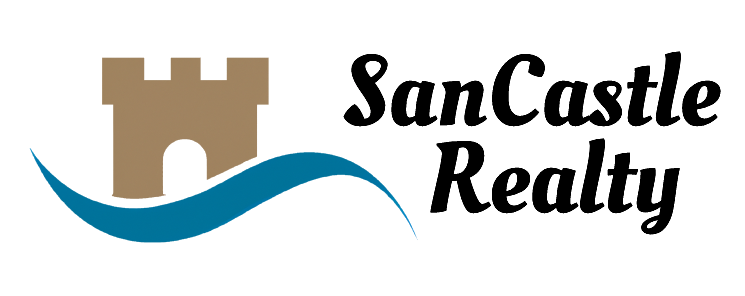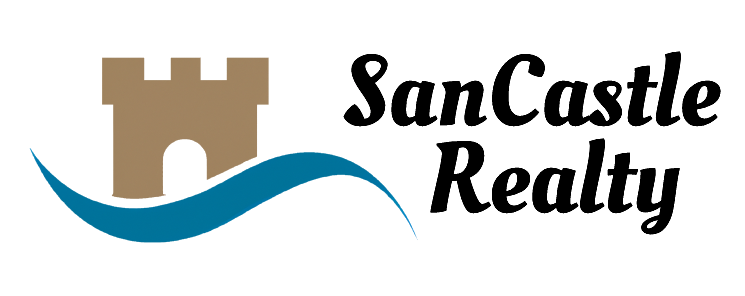sancastle realty's Blog
Our Blog Articles

End-of-Week Reflection: The Secret to Continuous Improvement
“We do not learn from experience... we learn from reflecting on experience.” – John Dewey
Listen to a deep dive into End of Week Reflection:
Reflection is one of the most powerful tools for growth, yet it’s often overlooked. For real estate agents, taking time at the end of each week to reflect on what worked, what didn’t, and what can be improved can lead to transformative results. By consistently evaluating your efforts, you can build better habits, adapt to challenges, and set yourself up for success week after week.
This article will explore why end-of-week reflection is essential, provide a framework for effective reflection, and offer actionable steps to make it a consistent habit.
Why End-of-Week Reflection is a Game-Changer
1. Gain Clarity
Reflection helps you process the week’s activities, providing clarity on what drove success and what caused setbacks.
2. Reinforce Wins
Acknowledging accomplishments, no matter how small, builds confidence and motivation.
3. Identify Patterns
Regular reflection reveals patterns in your performance, helping you fine-tune your strategies over time.
4. Plan with Purpose
Reflection allows you to set intentional goals for the following week, based on real insights.
The End-of-Week Reflection Framework
Step 1: Celebrate Successes
Ask: What went well this week?
Write down your wins, both big and small.
Reflect on the actions or strategies that led to these successes.
Step 2: Analyze Challenges
Ask: What didn’t go as planned?
Identify obstacles and evaluate their root causes.
Consider what you could do differently in similar situations moving forward.
Step 3: Evaluate Time Management
Ask: Did I spend my time on the right priorities?
Analyze how much time was spent on high-value tasks versus distractions.
Step 4: Set Next Week’s Priorities
Ask: What are the most important tasks for the coming week?
Define 1–3 specific goals that align with your long-term objectives.
Practical Examples of Weekly Reflection
Example 1: Prospecting Efficiency
Reflection: “I made 50 prospecting calls but only scheduled 2 meetings.”
Insight: My script might not be engaging enough.
Action: Revise my script and role-play with a colleague before next week’s calls.
Example 2: Time Allocation
Reflection: “I spent too much time on administrative tasks.”
Insight: These tasks can be delegated.
Action: Hire a virtual assistant or use a productivity tool to streamline processes.
Tips for Effective End-of-Week Reflection
Schedule a Reflection Time
Set aside 15–30 minutes every Friday or Sunday to reflect. Treat it like any other important appointment.
Use a Reflection Template
Structure your thoughts with prompts like:
What am I proud of this week?
What can I improve?
What will I focus on next week?
Be Honest with Yourself
Focus on actionable insights rather than assigning blame or avoiding challenges.
Track Progress Over Time
Keep a journal or digital record of your reflections to see how far you’ve come.
Tools to Support Weekly Reflection
Reflection Journals
Use a dedicated notebook or digital app to capture your thoughts each week.
Goal-Tracking Apps
Tools like Trello, Asana, or ClickUp can help you review progress and set next week’s priorities.
Accountability Partners
Share your reflections with a colleague or mentor to stay accountable.
Inspiration from Motivational Experts
Tony Robbins:
“Success leaves clues. Reflect, learn, and grow from your experiences.”
Robin Sharma:
“Routine reflects your priorities. Let weekly reflection guide your future.”
Conclusion: Reflect to Progress
Reflection is the bridge between where you are and where you want to be. By making end-of-week reflection a consistent habit, you can celebrate your wins, learn from your challenges, and step into the next week with clarity and purpose. Remember, growth doesn’t just happen—it’s cultivated through intentional actions.
Download our Weekly Reflection Planner to make reflection easy, structured, and impactful. Start building the habit of continuous improvement today!


